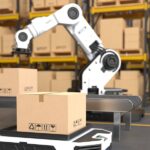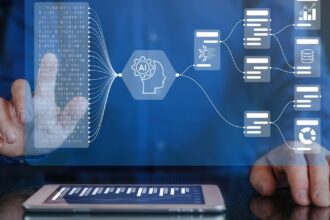Artificial intelligence (AI) is steadily moving into the accounting profession, not as a disruptive outsider but as a practical tool that improves speed, accuracy, and decision-making. A compelling case is the Brazilian National Treasury, which applied AI to classify and standardize subnational expenditure. What once required 1,000 hours of manual review was completed in just 8 hours, reaching 97% accuracy. This efficiency gain is not simply about reducing time, it demonstrates how public institutions can achieve scale and transparency through AI.
Private firms are seeing similar results. A European services company implemented intelligent document processing for invoice automation. By automating routine invoice handling, it cut processing times by two-thirds and significantly reduced error rates. More importantly, staff could redirect their efforts toward financial analysis and client advisory work. These examples highlight a shift in which AI accounting software is no longer treated as an experiment but as a core enabler of accounting automation.
Why AI in Accounting Is Accelerating
The rise of AI in accounting is not driven by novelty but by necessity. Finance teams face mounting pressure to deliver insight faster, ensure compliance with increasingly complex regulations, and reduce operational costs. In response, the AI in accounting market is booming, and projected to hit revenues over USD 96 billion by 2033, with firms embracing tools for:
- Bookkeeping automation
- Accounts payable automation
- Automated reconciliations
- AI-powered audits
What’s Fueling the Growth?
Several powerful forces are converging to accelerate AI adoption in accounting:
- Efficiency and Cost Savings Repetitive tasks like reconciliations and ledger updates consume time and invite errors. AI automates these processes, freeing professionals for higher-value work.
- Compliance Complexity With regulations tightening globally, AI audit tools and intelligent document processing help firms maintain accurate, auditable records across jurisdictions.
- Cloud Accessibility SaaS platforms have democratized access to advanced AI tools, allowing even small firms to scale without heavy infrastructure investments
- Seamless Integration APIs and modular designs enable AI tools to plug directly into existing ERP and finance systems, minimizing disruption.
- Labor Shortages With fewer junior accountants entering the field, automation ensures continuity in financial operations.
- Real-Time Insights Executives need faster forecasting and scenario modeling. AI delivers near-instant updates, enabling agile decision-making.
- ROI Focus Leaders demand measurable outcomes. AI tools deliver by shortening close cycles, reducing compliance risks, and accelerating reconciliations.
- Improved Data Quality As firms clean up their data and adopt standardized reporting, AI systems become more effective—creating a virtuous cycle of adoption.
Innovations Reshaping the Profession
While the drivers explain why adoption is growing, the innovations show how firms are applying AI in practice. Several developments are reshaping the profession:
- Intelligent document processing — Advances in natural language processing and optical character recognition have transformed how invoices, receipts, and contracts are handled. AI systems can now extract, validate, and route data automatically, reducing manual input. Example: AutoEntry enables seamless invoice automation within accounting systems.
- Automated reconciliations — Machine learning models can match transactions across accounts with high accuracy, surfacing only the exceptions that require review. This reduces the time required for monthly and year-end closes. Example: BlackLine provides AI-driven reconciliation tools used by large finance teams.
- AI audit capabilities — Rather than sampling transactions, AI can analyze entire ledgers, spotting anomalies or unusual patterns. This allows auditors to focus on areas of potential risk and strengthens the assurance process. Example: MindBridge Ai Auditor uses machine learning to detect irregularities in financial data.
- Conversational assistants in accounting software — Natural language interfaces allow users to query systems directly, such as asking, “Which clients have overdue invoices?” This improves accessibility and reduces the learning curve for non-technical users. Example: QuickBooks incorporates AI-powered assistants within its platform.
- Robotic process automation (RPA) with AI integration — Combining RPA and AI enables the automation of multi-step workflows across systems, from extracting supplier statements to updating ledgers. Example: UiPath offers RPA solutions tailored for accounting processes.
- Predictive forecasting and scenario modeling — AI-enabled forecasting tools integrate external data, such as commodity prices or currency fluctuations, to provide forward-looking insights. Example: Planful integrates predictive forecasting into its finance software.
- Synthetic data generation for safe testing — Training AI models often requires large datasets, but financial data is sensitive. Synthetic data solutions allow firms to simulate realistic accounting data without exposing client or company records. Example: enterprise-grade synthetic data tools are increasingly being adopted by financial services firms.
Challenges to Navigate
Despite the momentum, implementation isn’t without hurdles:
- Data Quality AI thrives on clean, consistent inputs. Poor data hygiene can derail results.
- Governance Firms must define which tasks require human oversight and ensure outputs are transparent and auditable.
- Legal and Privacy Concerns Data storage and processing rules vary globally—compliance is critical.
- Employee Acceptance Without thoughtful change management, automation may be met with resistance. Success depends on aligning technology with people.
The Road Ahead
AI in accounting is evolving from a niche experiment into a widely applied set of tools. Public institutions such as Brazil’s Treasury and private firms in Europe demonstrate that automation delivers measurable efficiency gains, while freeing accountants for more strategic work. Growth is being fueled by demands for efficiency, compliance, and cost control, while innovations such as automated reconciliations, conversational assistants, and predictive forecasting are expanding the toolkit available to finance teams. AI in accounting is expected to become a trusted ally—one that strengthens accuracy, accelerates reporting, and empowers accountants to play a more advisory and strategic role in their organizations.
















